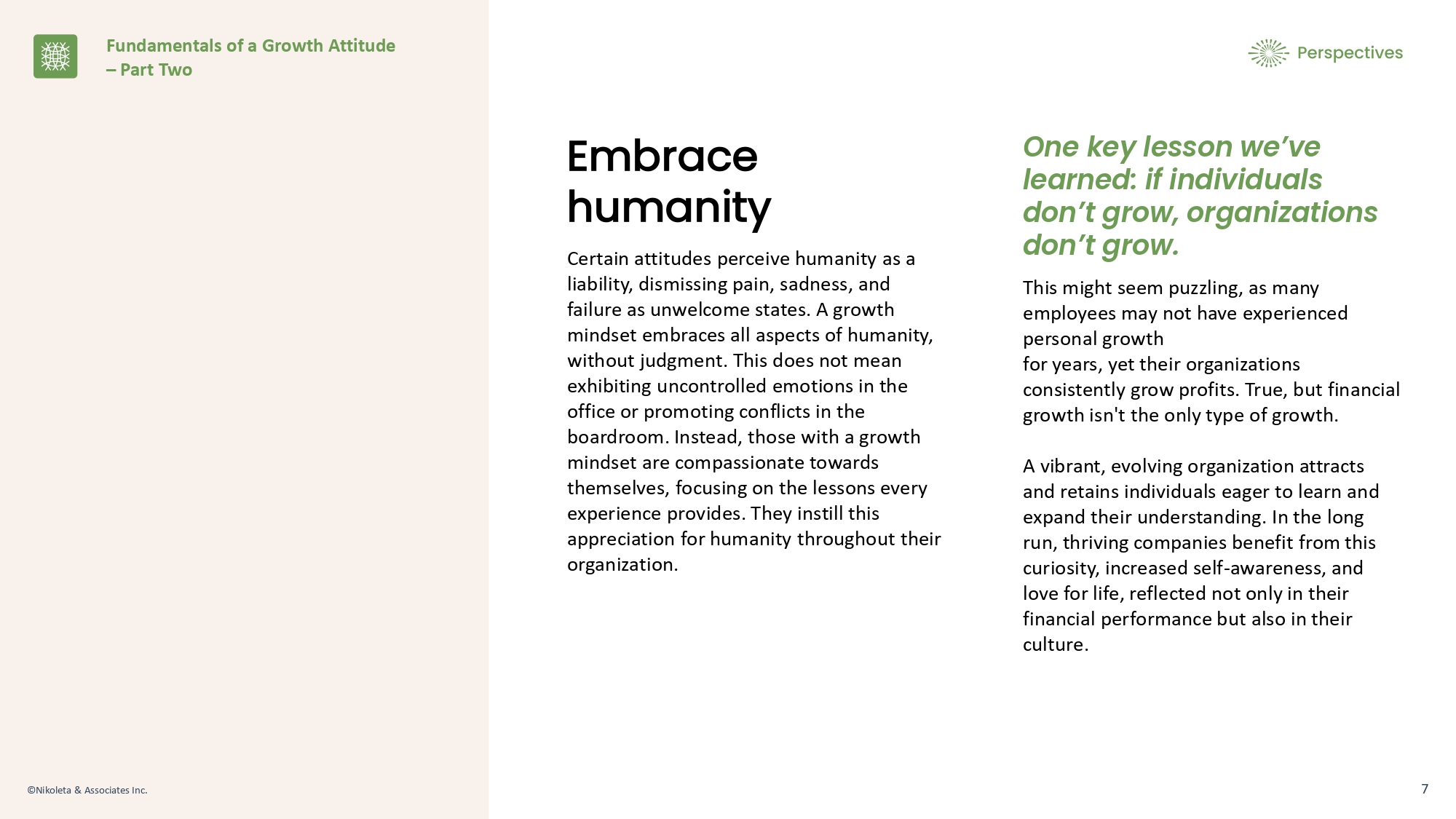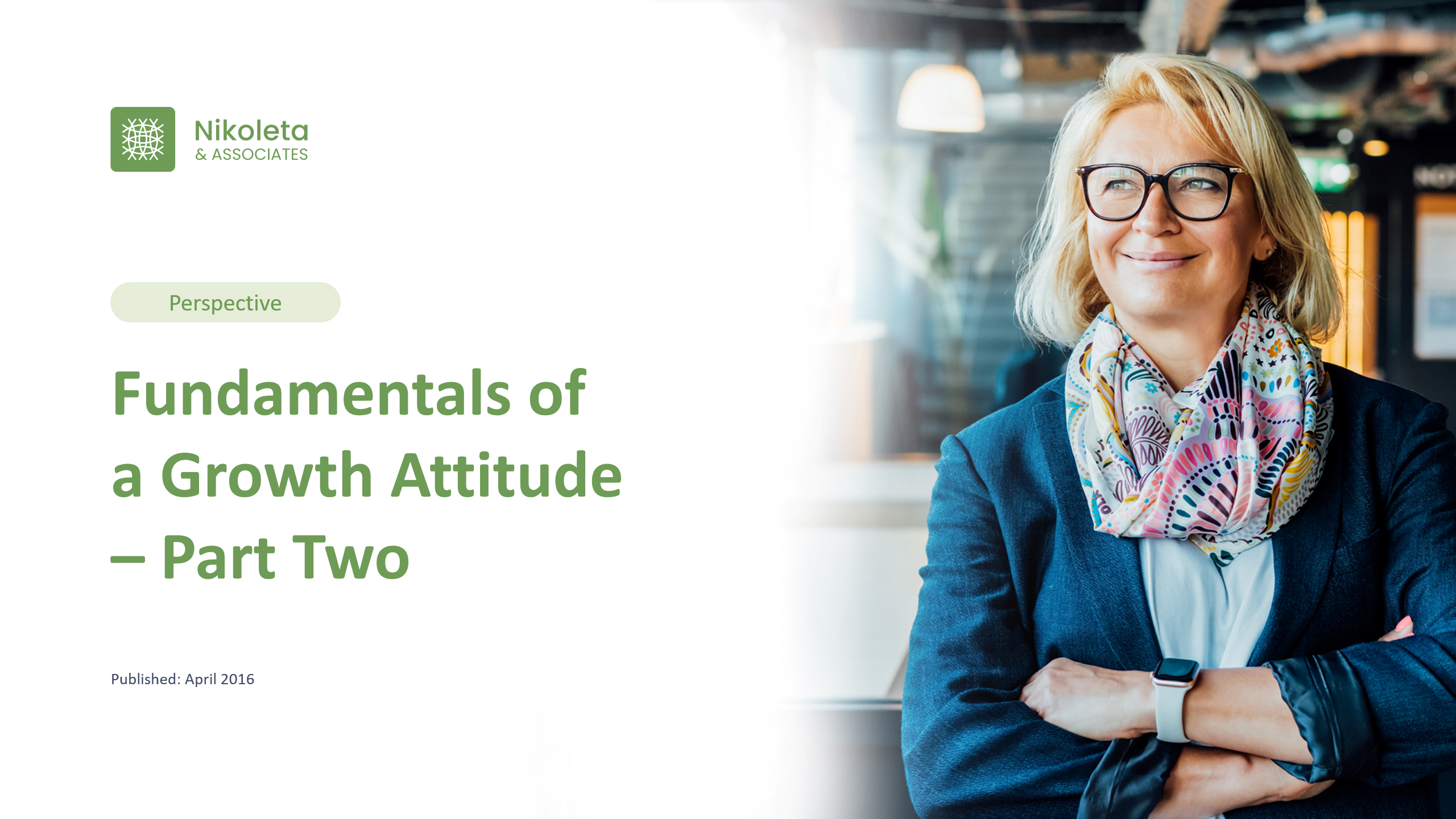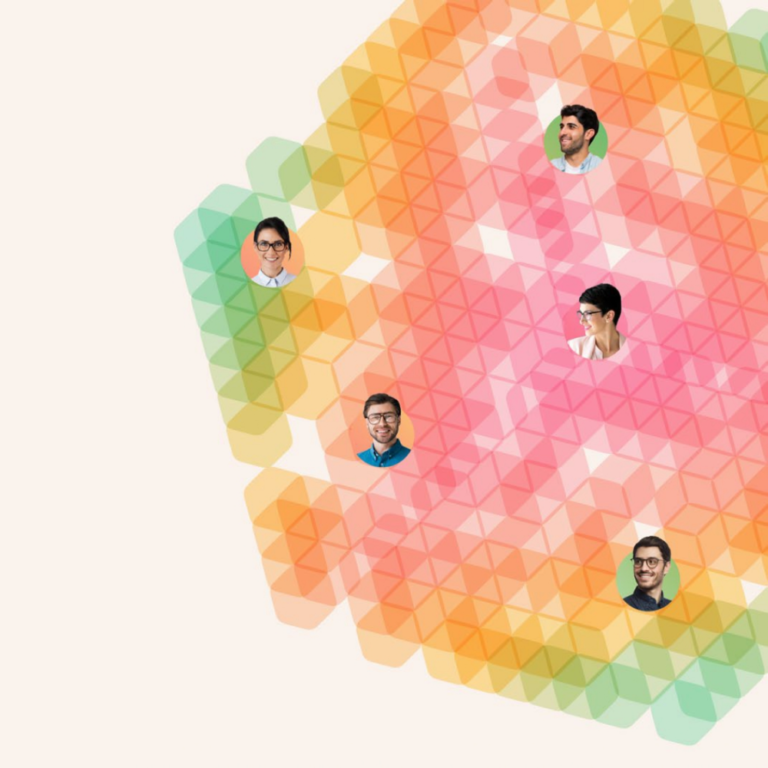Perspective
Fundamentals of a Growth Attitude – Part Two


In this final piece of our two-part series, we continue to unfold the common insights around growth we often encounter in our practice. Significantly, when it comes to one’s mode of existence, the nature vs. nurture debate only touches on the broad spectrum of the human phenomenon. Our experience suggests that the self is a process, and an individual’s self can indeed evolve over time, given the right context and a willingness to embrace change.
Here are a few more fundamental aspects of growth-oriented individuals:
Money isn’t everything
Those with a growth-centric perspective are generous and open-hearted—up to a limit. If their contributions aren’t appreciated, they move on to the next opportunity. Crucially, money usually doesn’t suffice for those with a growth mindset. The world’s bonuses and expensive gifts can’t equal the weight of recognition expressed through action. If a bonus is given without acknowledging a growth-oriented leader’s suggestions, or while persisting in a toxic culture, that leader will soon depart.
Acknowledge emotion, but don’t base decisions on it
Emotion is a potent force pervading all aspects of human life. Believing that you can ‘control’ or ‘suppress’ emotions is misguided, even perilous. Like water rerouted, emotion always finds a way out. The stronger the suppressive force, the more potent the emotional reaction.
Growth-oriented leaders acknowledge their raw emotions—they let them be felt while making decisions grounded in a comprehensive understanding encompassing emotion, logic, context, and knowledge.
Growth-oriented leaders lead without resorting to bullying, shouting, belittling or giving in to doubt, anxiety, and anger. Do they stumble? Undoubtedly. The point is, those on a growth trajectory allow their whole selves, not just their emotions, to influence decision-making.
Focus more on ‘how do we move forward’ rather than ‘who is to blame’
In business, when things go awry, many concentrate on finding the cause and allocating blame. Yet, blame doesn’t alter the outcome or progress matters. Blame can be an emotional outlet, a means to ‘identify the culprit’ and punish them. Still, you’re left dealing with whatever ‘went wrong.’
No human has lived their life without making mistakes. Growth-oriented individuals comprehend this. They understand it’s possible to progress while blaming, a subtle emotional need to absolve oneself of fault. Truly moving forward involves abandoning the idea of blame altogether. Due to this ability to shift quickly to future-focused actions, growth-minded individuals tend to excel, especially in crises.
Learn, and apply the lessons
Regarding human development, some people encounter radically different concepts and treat them as intriguing, optional ideas rather than transformative teachings. They observe them passively, like scenery viewed from a train window.
Growth-minded individuals, however, let self-learning seep deep within, effecting genuine, lasting change. As they grow comfortable with change, these individuals adapt and transform, even making apparent U-turns in their lives based on what they learn.
Embrace humanity
Certain attitudes perceive humanity as a liability, dismissing pain, sadness, and failure as unwelcome states. A growth mindset embraces all aspects of humanity, without judgment. This does not mean exhibiting uncontrolled emotions in the office or promoting conflicts in the boardroom. Instead, those with a growth mindset are compassionate towards themselves, focusing on the lessons every experience provides. They instill this appreciation for humanity throughout their organization.
One key lesson we’ve learned: if individuals don’t grow, organizations don’t grow.
This might seem puzzling, as many employees may not have experienced personal growth for years, yet their organizations consistently grow profits. True, but financial growth isn’t the only type of growth.
A vibrant, evolving organization attracts and retains individuals eager to learn and expand their understanding. In the long run, thriving companies benefit from this curiosity, increased self-awareness, and love for life, reflected not only in their financial performance but also in their culture.














